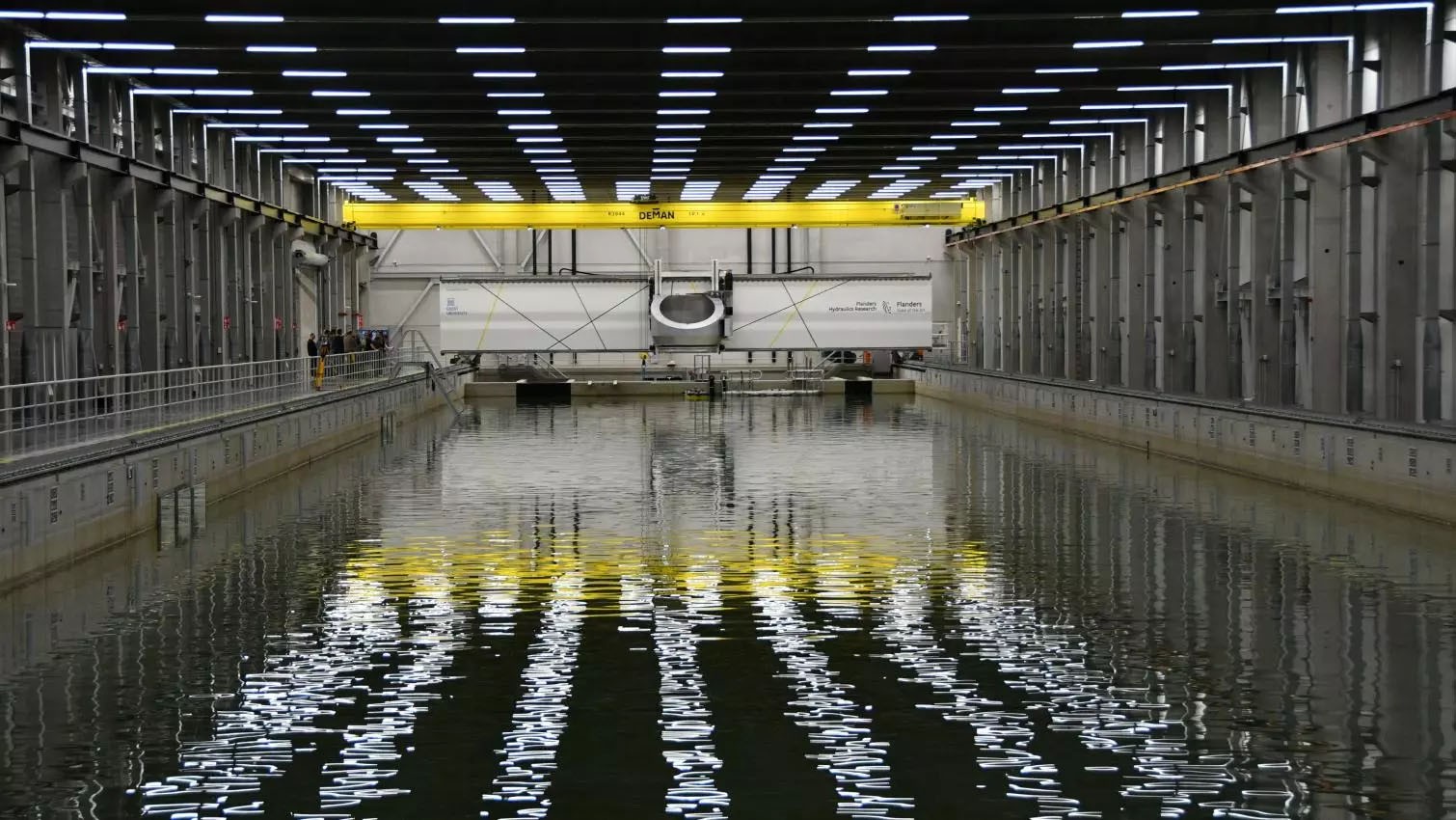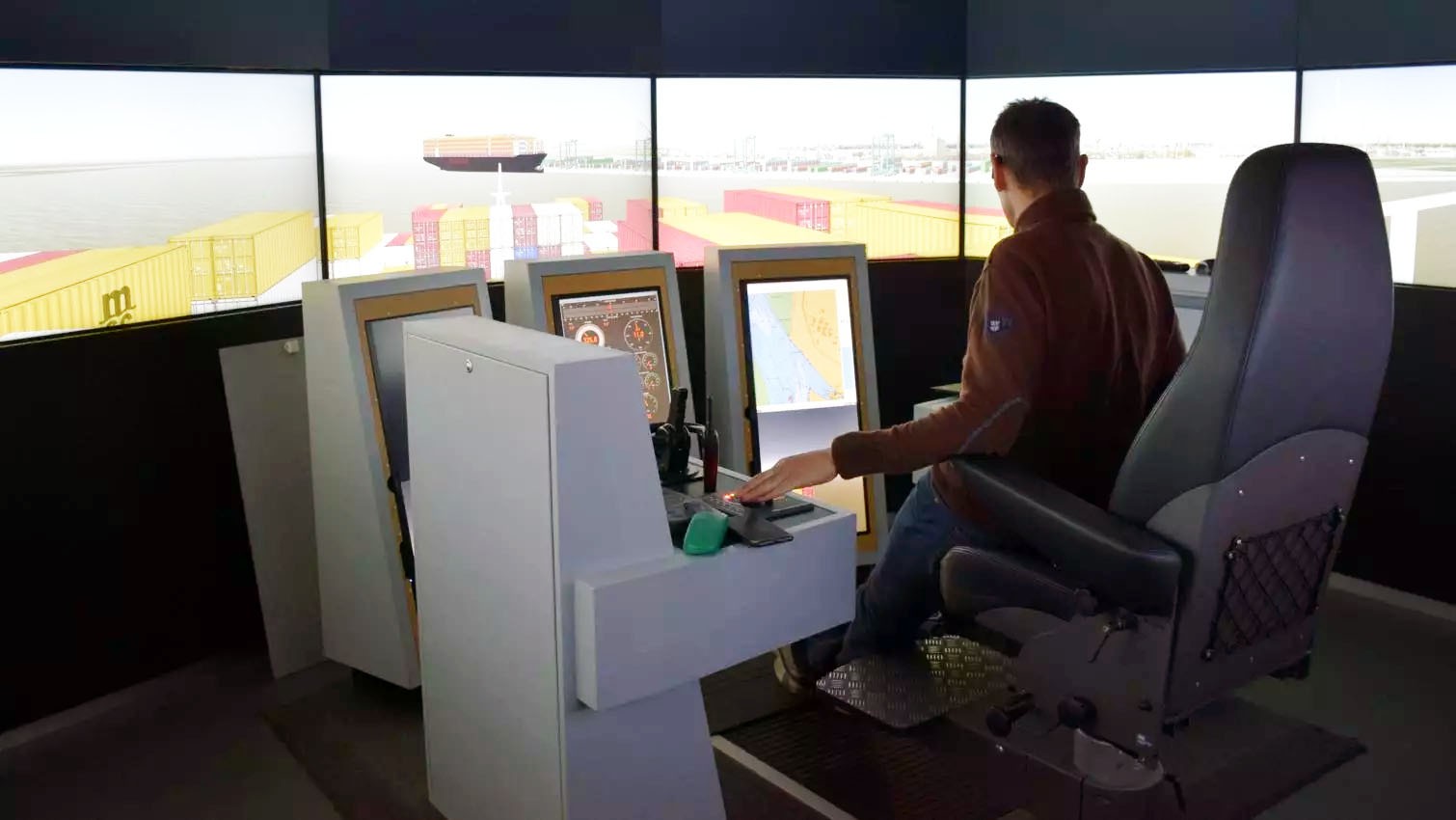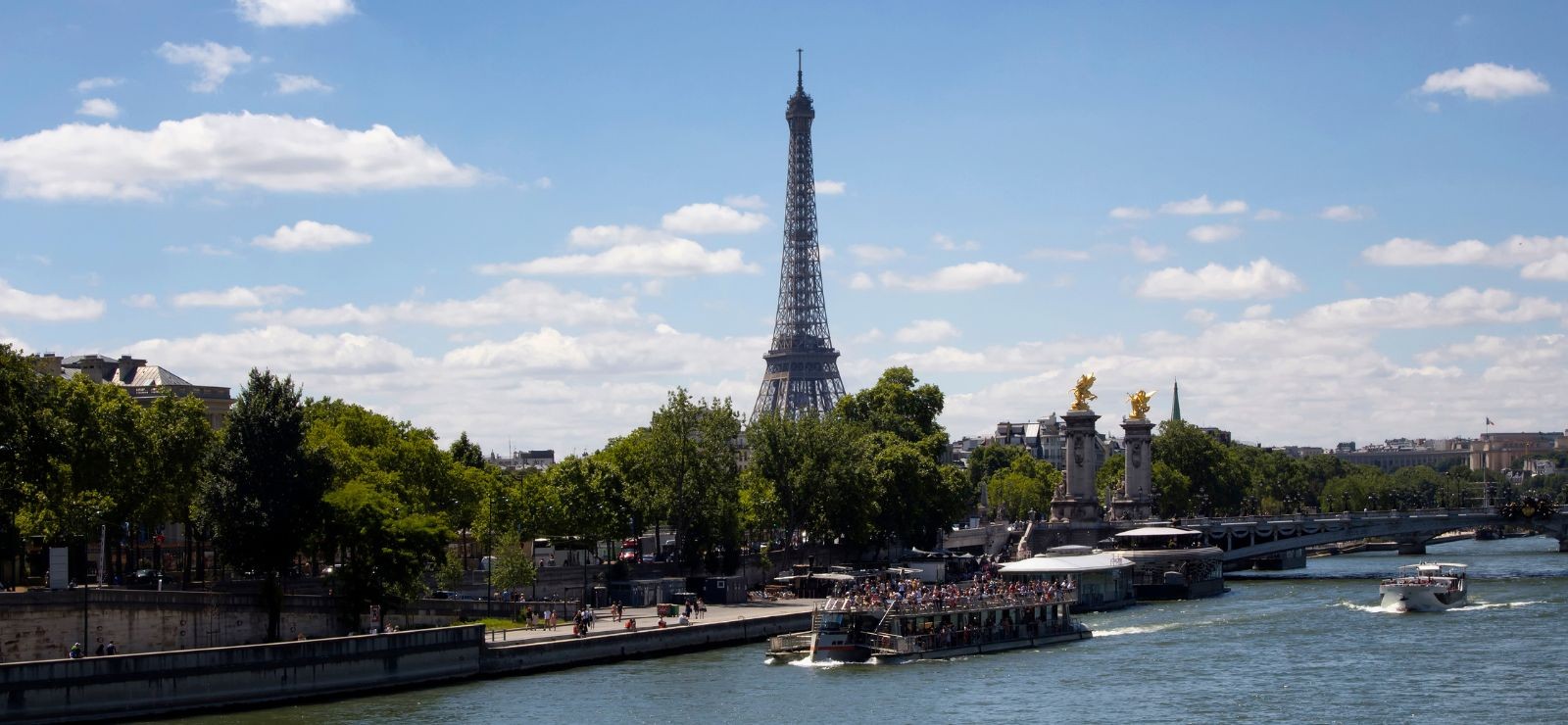No traditional opening for the Olympic Games in Paris, but a spectacular fleet of 85 boats on the Seine with 10,500 athletes on board. It was a historic moment and a technical feat. The research group of Evert Lataire, Ghent University professor of Ships and Marine Technology, trained the captains for this unique boat parade.
Ships in shallow water
Professor Evert Lataire's Ships and Marine Technology research group conducts research into the behaviour of ships in shallow water, among other things. "We focus on canals and rivers where ships have little room to manoeuvre," professor Lataire explains.
"For example, we are investigating the maximum size of container ships to sail on the Scheldt. Or under what conditions an adapted inland vessel is allowed to sail in the North Sea. We are also researching the placement of floating solar panels and aquaculture between offshore wind turbines."
For this research, Ghent University is working closely with Flanders Hydraulics Research (WL) of the Flemish government: "We share a knowledge centre and we use their facilities in Antwerp and Ostend. For instance simulators and towing tanks, gigantic swimming pools in which we tow ships."

Ghent University is working closely with Flanders Hydraulics Research (WL) of the Flemish government: "We share a knowledge centre and we use their facilities in Antwerp and Ostend."
Simulator development
"In our research, we map out all kinds of factors: current, how deep or shallow the water is, bridges, rudder angles, whether there is sufficient margin and what forces are at play on the ship through the seabed and banks. We use those data to create mathematical models that we input in a simulator."
"The simulators of Flanders Hydraulics that we are co-developing are like a flight simulator but for ships. They differ from commercial models because they work on the basis of the extensive data from specific trials. The visuals may be less spectacular, but the hydrodynamic effects are much more expansive, realistic and continuously customisable."
Risky parade
It is precisely these simulators that came in handy in the preparation of the opening ceremony of the Olympic Games. Professor Lataire's research group, together with Flanders Hydraulics Research and IMDC, was approached by the French DRIEAT (Direction régionale et interdépartementale de l'environnement, de l'aménagement et des transports) to train and prepare the skippers of the boat parade on the simulators.
"A fleet of almost a hundred boats on the Seine is risky. A long trip, a lot of current, many ships in convoy sailing relatively close to each other at a high pace, while one and a half billion people worldwide are watching. There was a lot of pressure," says Professor Lataire.
"If someone falls overboard, it can have major consequences. If a ship fails or blacks out, everything will stall. And you can't just brake with a ship, it needs up to 10 times its own length to do so."
"Although most of the skippers involved sail on the Seine on a daily basis, they are not used to these conditions. But unfortunately it was not feasible to practice on the Seine beforehand. That's why they asked us to simulate the trip."

In the week leading up to the opening ceremony, each skipper had to train for at least 45 minutes on portable simulators to prepare for the journey.
Fireworks in the simulator
In the week leading up to the opening ceremony, each skipper had to train for at least 45 minutes on portable simulators to prepare for the journey.
The exercise was as realistic as possible. Professor Lataire: "Among other things, fireworks were added to the simulator because they can distract the skippers. The simulators also include buildings such as Notre-Dame and the Louvre: these are benchmarks for the skippers to turn or slow down."
"Fortunately, thanks to our joint expertise with Flanders Hydraulics, we already had knowledge of the environment, ships and currents from our previous studies for the French waterway authority. They very recently gave permission to larger inland vessels to sail on the Seine. That's a direct result of our research."
Read also
Alumnus Inge Bru coaches Paralympic athletes in Paris: "It's going to be intense!"
Good news for sports fanatics, the summer of sports is not over yet! Our Belgian athletes will soon be competing at the Paralympic Games. Alumna Inge Bru, specialist in physical medicine and rehabilitation at Ghent University Hospital, accompanies them in Paris.
Ghent University researchers support Olympic track cyclists: optimal performance thanks to sensors and AI
If the Belgian track cyclists win a medal at the upcoming Olympic Games, it will not only be the result of top performances but also of top research. In the Flemish Cycling Centre Eddy Merckx, a stone's throw from the Watersportbaan, a group of researchers from the IDLab of UGent-imec supports our track cyclists with the help of artificial intelligence (AI).
Ghent-based DoCoLab helps to control doping at the Olympic Games
The doping controls at the upcoming Olympic and Paralympic Games will again have a Ghent connection. The doping control lab of Ghent University, DoCoLab for short, is sending a team of researchers to Paris to help check many thousands of samples. Peter Van Eenoo, head of the lab, professor and cycling fan, will be part of that team: "We won't have lots of free time, but I do hope to catch some of the cycling (laughs)."
Why is doping not allowed at the Olympics in Tokyo?
The Doping Control Lab at Ghent University is an international authority in the field of doping research. The lab will be sending a delegation to the Olympics in Tokyo this year, just like it did during previous editions. But why is this necessary? Why aren’t athletes free to choose what they do with their own body? DoCoLab’s manager, prof. Peter Van Eenoo, sheds some light on these questions.




